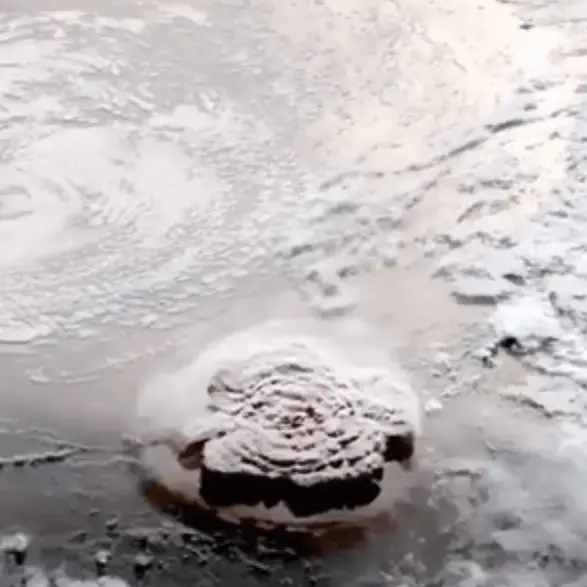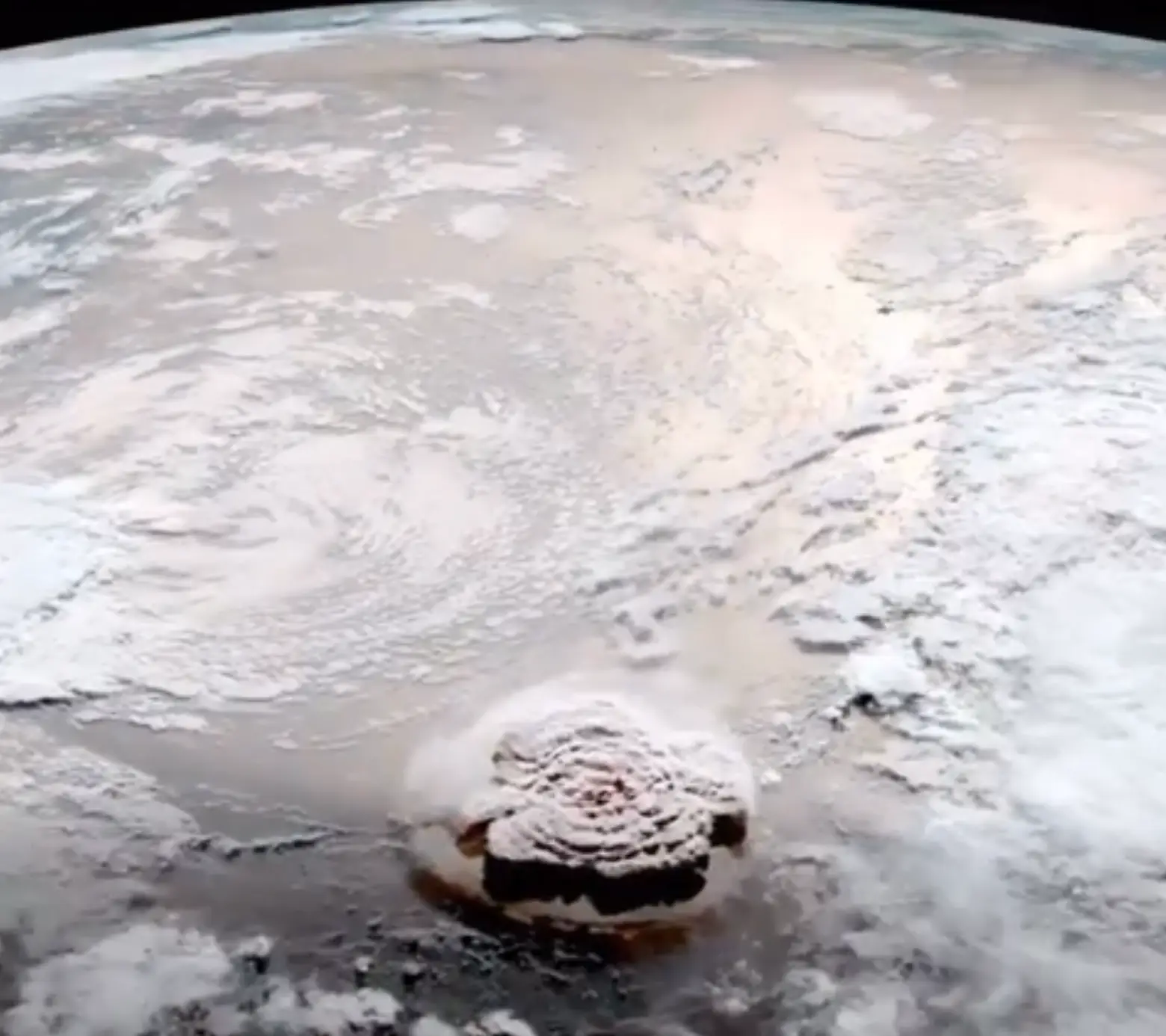
Incredible footage captured from two different satellites depicts the moment a huge volcanic eruption spewed more than 10 cubic kilometers of rock, ash, and sediment into the atmosphere.
The satellite imagery begins with relative calm as swirling cloud formations float above the deep blue of the ocean.
The cloud of volcanic ash begins as a speck that looks barely larger than a pinhead, but quickly spreads out across a huge area of the atmosphere.
The footage, which was shared on X by the user @WonderOfScience, is of the Hunga Tonga-Hunga Haʻapai eruption that happened in 2022.
Advert
Located in the South Pacific, 40 miles north of the island nation of Tonga, the underwater volcano had been steadily erupting for nearly a whole month before the dramatic final explosion on the 15th January, which was hundreds of times more powerful than the atomic bomb dropped on Hiroshima.

Although slightly harder to spot, a massive shockwave can also be seen in the satellite footage, sweeping across the globe like a ripple in a puddle.
This pressure wave circled the Earth for days, and is the first scientists have seen in more than half a century.
It triggered tsunamis around the Pacific as far away as Chile and Japan, destroyed homes, and infrastructure, and caused an estimated $90 million in damage, according to the World Bank.
But amazingly, thanks to its remote underwater location, only seven people are believed to have been killed.
The eruption was rated a 5 on the Volcano Explosivity Index scale, and is the largest atmospheric eruption ever detected by modern detection equipment.
Although 5 might not sound like a lot, it is in fact rare for eruptions of that size to take place, making it comparable to the eruption of Mount Vesuvius in 79AD that destroyed the Roman city of Pompeii.
Only a handful of eruptions in modern times have been larger.
The 1991 eruption of Mount Pinatubo, which killed around 900, was rated a 6, as was the 1883 eruption of Krakatoa, which was so large it burst the eardrums of sailors on a ship 40 miles away.
Meanwhile, eruptions reaching an 8 on the Volcano Explosivity Index – the highest level on the scale – have only been seen in prehistory.
These include the massive eruption of Yellowstone, which happened two million years ago.
Scientists fear another eruption on this scale could bring an end to almost all life on Earth.
